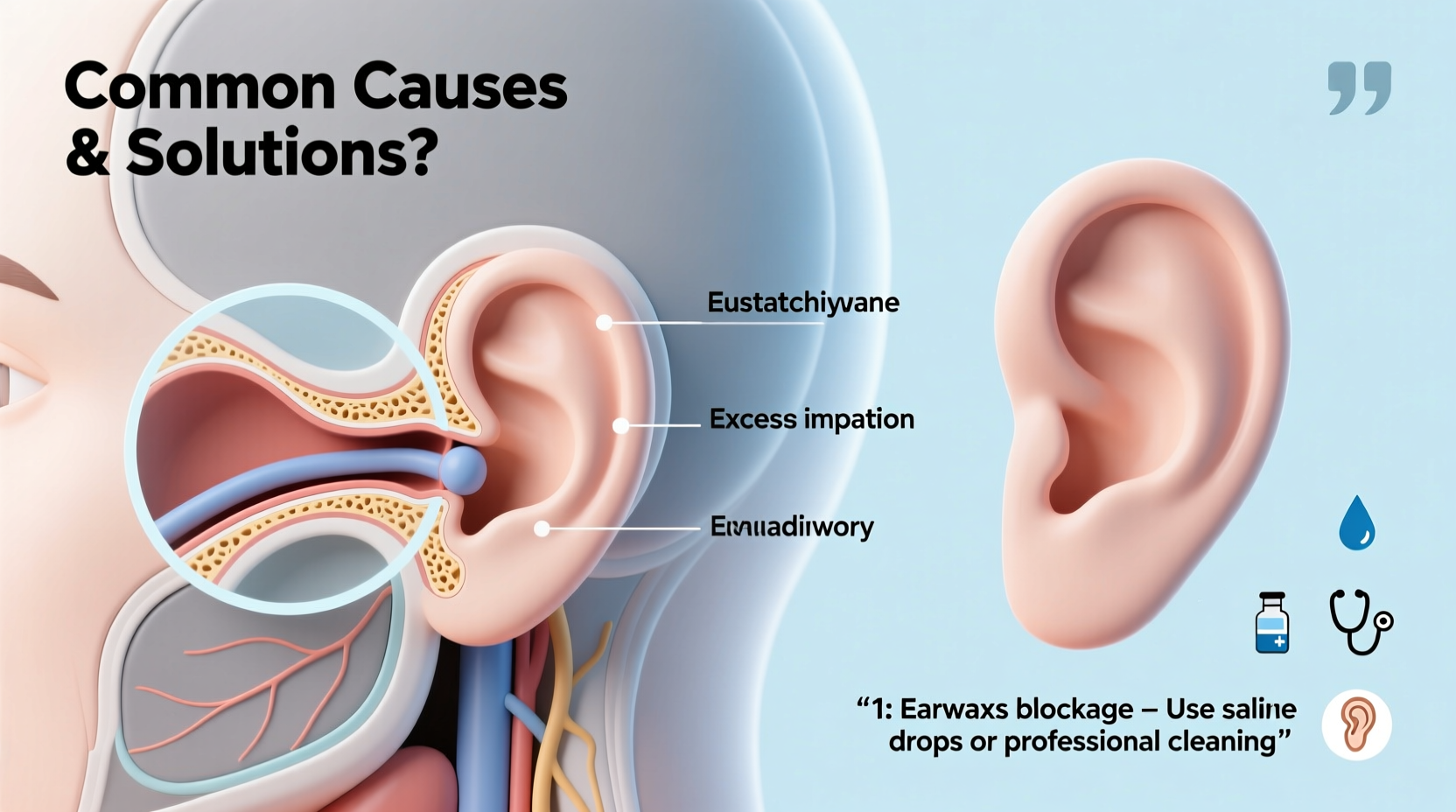Sudden or gradual hearing loss in one ear is more than just a minor inconvenience—it can be alarming and disruptive. Whether it comes on quickly after a flight, during a cold, or without any obvious trigger, unilateral hearing loss should never be ignored. While some causes are temporary and easily treated, others require urgent medical attention. Understanding the root of the problem is the first step toward effective treatment and recovery.
Common Causes of One-Sided Hearing Loss

Hearing loss in one ear—medically known as unilateral hearing loss—can stem from a range of conditions, from simple blockages to serious neurological issues. The most frequent culprits include:
- Earwax buildup (cerumen impaction): A common, non-threatening cause where wax blocks the ear canal.
- Ear infections (otitis media or externa): Inflammation or fluid behind the eardrum or in the outer ear canal can dampen sound.
- Eustachian tube dysfunction: Often triggered by allergies, colds, or sinus congestion, this condition prevents proper pressure equalization.
- Swimmer’s ear: An infection in the outer ear canal, often painful and accompanied by swelling.
- Sudden sensorineural hearing loss (SSNHL): A rapid loss of hearing, usually within 72 hours, often due to viral infection, inflammation, or vascular issues.
- Acoustic neuroma: A rare, benign tumor on the nerve that connects the inner ear to the brain.
- Barotrauma: Pressure damage from flying, scuba diving, or rapid altitude changes.
When to Seek Immediate Medical Help
Not all hearing issues require emergency care, but certain symptoms signal the need for prompt evaluation. Sudden sensorineural hearing loss, for example, is considered an otologic emergency. The window for effective treatment is narrow—ideally within 72 hours of onset.
“Sudden hearing loss in one ear is a medical emergency. Delaying treatment reduces the chances of full recovery.” — Dr. Alan Wong, Otologist and Hearing Specialist
Visit a healthcare provider immediately if you experience:
- Sudden drop in hearing with no pain
- Dizziness or vertigo alongside hearing loss
- Tinnitus (ringing) in the affected ear
- Facial weakness or numbness
- Headaches or balance issues
Step-by-Step Guide to Diagnosis and Treatment
If you’re experiencing one-sided hearing loss, follow this practical timeline to ensure timely and accurate care:
- Day 1 – Self-Assessment: Note when the hearing loss started, whether it was sudden or gradual, and any accompanying symptoms (pain, dizziness, discharge).
- Day 1 – Avoid Irritants: Stop using headphones, avoid loud noises, and do not attempt home remedies like ear candling or flushing if there’s pain or discharge.
- Day 1–2 – See a Doctor: Visit your primary care physician or an ENT (ear, nose, and throat) specialist. They will perform an otoscopic exam to check for wax, infection, or structural issues.
- Day 2–3 – Diagnostic Tests: If the cause isn’t clear, you may undergo audiometry (hearing test), tympanometry (eardrum function), or imaging (MRI/CT scan) if a tumor is suspected.
- Days 3–7 – Begin Treatment: Depending on diagnosis:
- Earwax blockage → Ear drops or professional irrigation
- Ear infection → Antibiotics or antifungals
- SSNHL → Oral or injected corticosteroids
- Eustachian tube dysfunction → Decongestants, nasal sprays, or autoinflation techniques
- Follow-Up: Re-evaluation within 1–2 weeks to monitor progress, especially in cases of SSNHL.
Do’s and Don’ts: Managing One-Ear Hearing Loss
| Do’s | Don’ts |
|---|---|
| Use over-the-counter wax softeners if buildup is suspected | Insert cotton swabs or sharp objects into the ear |
| Try chewing gum or yawning to relieve pressure during flights | Ignore sudden hearing loss—even if painless |
| Keep ears dry during showers or swimming | Use unproven home remedies like essential oils or vinegar without medical advice |
| Seek an ENT specialist for persistent symptoms | Delay treatment beyond 72 hours if hearing drops suddenly |
Real-Life Example: Recovering from Sudden Hearing Loss
Mark, a 42-year-old teacher, woke up one morning unable to hear out of his right ear. There was no pain, but he noticed a loud ringing and felt slightly off-balance. He initially dismissed it as earwax, but when the issue persisted past 24 hours, he visited an ENT. Audiometry confirmed sudden sensorineural hearing loss. He began a course of oral steroids within 48 hours and added intratympanic steroid injections. After three weeks of treatment, Mark regained 85% of his hearing. His doctor emphasized that acting quickly made the difference between partial and full recovery.
Prevention and Long-Term Care Tips
While not all causes of one-sided hearing loss can be prevented, several lifestyle habits reduce risk:
- Protect your ears: Use earplugs in noisy environments and swim-safe earmolds in pools.
- Avoid excessive headphone use: Follow the 60/60 rule—no more than 60% volume for 60 minutes at a time.
- Manage allergies and sinus issues: Chronic congestion contributes to Eustachian tube dysfunction.
- Stay hydrated: Dry mucous membranes increase wax buildup and infection risk.
- Equalize pressure carefully: During flights or diving, use gentle techniques like swallowing or the Valsalva maneuver.
Frequently Asked Questions
Can stress cause hearing loss in one ear?
Stress alone doesn’t directly cause hearing loss, but it can exacerbate conditions like tinnitus or contribute to sudden hearing loss by weakening the immune system or increasing inflammation. It’s often a contributing factor rather than the sole cause.
Will my hearing come back after an ear infection?
In most cases, yes. Conductive hearing loss due to middle ear fluid or outer ear swelling typically resolves once the infection clears. However, repeated infections can lead to long-term damage, so ongoing monitoring is important.
Is it safe to flush my ear at home?
Only if there’s no pain, discharge, or history of ear surgery. Over-the-counter kits with saline or wax-dissolving solutions are generally safe for mild wax buildup. But if symptoms persist, see a professional—self-flushing can worsen irritation or cause perforation.
Conclusion: Take Action Before It’s Too Late
Hearing loss in one ear is not something to wait out. While some causes are minor and reversible, others demand swift intervention to prevent permanent damage. From routine wax buildup to rare tumors, the spectrum of possible conditions underscores the importance of professional evaluation. Pay attention to your body, act quickly when something feels off, and don’t downplay sudden changes in hearing. Your ability to communicate, stay balanced, and engage with the world depends on it.









 浙公网安备
33010002000092号
浙公网安备
33010002000092号 浙B2-20120091-4
浙B2-20120091-4
Comments
No comments yet. Why don't you start the discussion?